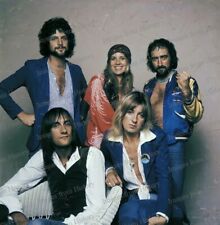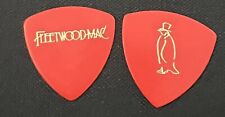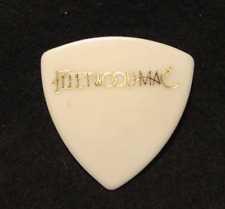|
Green Going His Own Way (Los Angeles Times) Los Angeles Times September 4, 1998 Section: Calendar Guitarist Peter Green Is Going His Own Way
Pop music: The co-founder of Fleetwood Mac, who spent time in psychiatric institutions, is performing again.
MARC WEINGARTEN
SPECIAL TO THE TIMES There have been many celebrated comebacks in the music business, but guitarist Peter Green's saga is so extraordinary it can only be classified as a resurrection. The co-founder of Fleetwood Mac, Green was the English band's primary songwriter and singer during the band's early phase as blues-rockers, from 1967 to 1970. In fact, the group's original official name was Peter Green's Fleetwood Mac. Green, 51, is perhaps best known in America as the composer of "Black Magic Woman," which became a Top 10 hit when Santana recorded it in 1970. But in England he was considered by many to be a full-blown guitar god, right up there with contemporaries Jimi Hendrix, Eric Clapton and Jimmy Page. By 1969, Fleetwood Mac had become one of England's best-selling bands. Then the bottom fell out. Green, guilt-ridden over his wealth and fame, left the band in June 1970. He gave away his royalty checks, sold his guitars and began living a hermetic life. Heavy use of hallucinogens began to impair Green's judgment and mental capacity, and he bounced in and out of psychiatric institutions for 20 years, where he underwent electroshock therapy on numerous occasions. Although he recorded two albums in the late '70s, it appeared that the guitarist had become just another dysfunctional drug casualty, not unlike Pink Floyd founder Syd Barrett. Three years ago, however, Green summoned the will to begin rehabilitating himself. With the help of a few close friends, he stopped taking all medication and taught himself to play guitar again after a decade of inactivity. He recently made his second album in two years, an acoustic collection of Robert Johnson songs, and his band the Splinter Group is currently touring the States. They'll appear at the Ventura Theatre on Saturday and at the Long Beach Blues Festival on Sunday. But Green doesn't like the term "comeback." "I don't know what people mean by 'comeback,' " he says. "We're just sort of seeing what we've got. I was very critically ill for a while there, you might say. I'm not really back yet." Indeed, during a recent interview, Green is distant and out of sorts. He has trouble with names and dates, and his speech tends to ramble and wander. For all the progress he's made, Green is well aware that he's an ongoing reclamation project. "I've been kind of dead for a long time," he says. "I couldn't function at all. I really haven't got it all together yet, but I'm working on it." You'd never know that he's not together from listening to Green's hauntingly beautiful new album, "The Robert Johnson Songbook," on Snapper Music. It's a collaboration with guitarist Nigel Watson, whom Green credits with setting him on the path to recovery. Watson, the brother-in-law of original Mac manager Clifford Davis, took Green in as a house guest three years ago and slowly introduced him to music again. "He lived in our house for nine months," Watson says in a separate interview. "At first it was very difficult, because Peter doesn't like to listen to anyone, and he didn't think anyone cared about him, and I convinced him that he was wrong, and that it was a waste not to be playing guitar." According to Watson, seeing Green trying to reel off guitar licks was a bit like watching a child learn to ride a bike without training wheels. "His fingers wouldn't do what his mind wanted them to do," he says. "He eventually came around, though." * Despite the lost years, Green has no regrets, particularly when it comes to Fleetwood Mac, which went on to become one of the most successful bands in pop music history. "There was a moment there when I wondered what it would have been like to go with them," Green says. "But it was only temporary. I'm glad for them, but I don't worry about it." Although he remains friends with the band's drummer, Mick Fleetwood, he's adamant about never playing with his former mates again. "I'm doing something different now," Green says. "I've scratched all of that out of my life, that 'I'm a famous pop star' stuff." For now, Green is content to hone his chops, tour when he feels up to it and make records. "I'm still trying to get over this hurdle. I'm still a bit cloggy and foggy," he says. "I certainly feel a lot better when I play music, however. I think I might be among the people who almost get back what they had before. I'm glad I'm back to being a musician, as opposed to walking around like a piece of stale bread."
|









